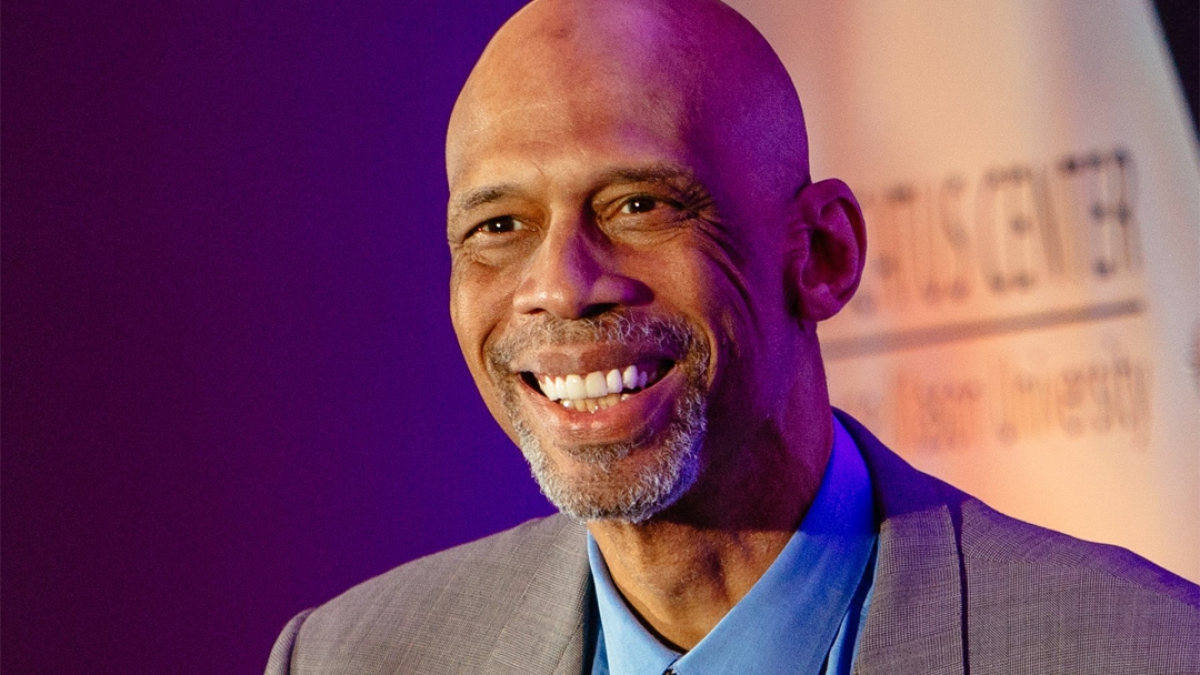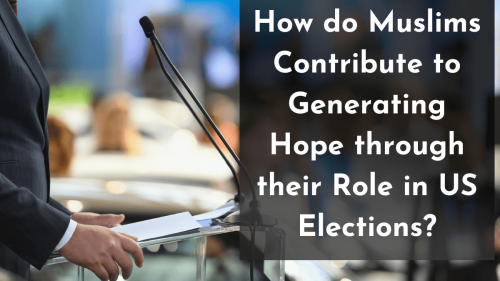World’s Greatest Basketball Player and Humanitarian

Every millennium it seems that humanity is blessed with a person who transcends his professional career and changes the way we look at ourselves. In the story of Lew Alcindor who later became Kareem Abdul Jabber the world witness arguably one of the greatest athletes and definitely one of the greatest basketball players. But his story beyond the court is as impactful as his athletic accomplishments on the court. With his celebrity status, he did not recline to the norms of society but challenged the political injustice surrounding his upbringing to free his mind. In doing so, he became a role model for young men and women around the world. An integral part of his journey and transformation was his conversion to Islam and the teachings of the Quran.
One day during the month of Ramadan in 1968, Dr. Salahuddin Bryson brought a very tall African-American young man named Lew Alcindor to watch Muslims pray in a location close to the University of California, Los Angeles (UCLA). At this location, Muslims from Pakistan, India and Burma had gathered to perform the Isha (evening) and Ramadan-Taraweeh prayers. He was then a student at University of California at Los Angeles and its most celebrated basketball players.
In his early life Lew Alcindor felt imprisoned by a certain image that did not fit his life and thinking. This awareness lead him to ask questions about the norms in society. He said later that his early awakening came from reading The Autobiography of Malcolm X (al-hajj Malik Shahbazz)” that provided him a sudden, dramatic, and seemingly irreversible beginning, a shift in consciousness, and moved him to higher levels of achievement of the mind and spirit. This transformation inspired him and he began to study the Quran and eventually convert to Islam.
Most people know Kareem Abdul Jabber the basketball player who was arguably the face of basketball from high school through his illustrious 20 year professional career. Lew Alcindor was the tallest child in the school system and everybody in the school encouraged him to play basketball. He mastered the essentials of the game as early as fifth grade, and developed the soaring "sky hook" that became his signature shot on the basketball court. His ability won him a scholarship to a private Catholic high school. At the age of 15, he led his school team to 95 victories in 101 games and three consecutive championships in New York City's Catholic school league. In all three years, he was named a high school All-American Player. His accomplishments on the basketball court made him a highly recruited student athlete. He chose to play at the University of California, Los Angeles (UCLA) where he became one of the most decorated student athletes in NCAA(National Collegiate Athletic Association) history and rewrote many of the record books. He is the only player named the NCAA Tournament's Most Outstanding Player three times and became the most famous college sports star. He became eligible to play during his sophomore year and played for three years (1967-1969) leading UCLA to national champions all three years, losing only two games out of 90. Winning became synonymous with Lew Alcindor.
After a decorated college career at UCLA, Lew Alcindor was selected as the top overall pick by the Milwaukee Bucks in the 1969 National Basketball Association (NBA) draft. He quickly became one of the most dominate centers in the league finishing second in the league in scoring and was named Rookie of the Year. In only his second season, he was named the Most Valuable Player (MVP), and led the Bucks to 1970-1971 NBA championship where he not only helped the Bucks win their only championship but was also named the most dominate player in the Finals winning the NBA Finals MVP.
The next two years after winning the NBA championship, Kareem Abdul-Jabbar established himself as the most dominate basketball player in the league winning the league MVP twice. Kareem Abdul Jabbar played for the Milwakee Bucks from 1969 to 1974, and then he moved to Los Angeles and played for Lakers from 1975-1989 and was key player during the Laker’s “Showtime” era. “The Captain” would win another five championships with the Lakers and would establish himself as arguably one of the greatest players to ever play the game. His performance was the product of disciplined training regimen which he used on the basketball court with speed and grace. He perfected the unstoppable skyhook shot in basketball history that continues to marvel the world of basketball. He scored 38,387 points in his career, the highest by any player, a record still held in the league. In addition to being the all-time leading scorer in NBA history, he is ranked 3rd all-time in both rebounds and blocks; a six-time NBA champion and league MVP. In 2007 ESPN voted him the greatest center of all time, in 2008 they named him the "greatest player in college basketball history, and in 2016, "All-Time #NBA rank 2 player.”
Since 2005, Abdul-Jabbar has served as special assistant coach and as coach for 2009-2010 Season for the Lakers. This year, 2016, he was chosen to be on the Lakers Float in the Pasadena Rose Parade on the New Year’s Day.
However, Kareem Abdul Jabber’s story does not start or end with his athletic accomplishment. Furthermore, student athletics is not the only reason he came to UCLA. Lew Alcindor as he was called then was in tuned to his political surrounding. At UCLA, he earned a B.A. studying history and was keenly aware of the complex moral and political issues of the 1960’s. Of most importance to him was the lack of recognition of African-American achievement in the history and development of America. He was an admirer of Malcolm X and appreciated how his hard work was a catalyst in the civil rights movement. His new found awareness about race relations around the world informed his consciousness. For example, he declined to play for the US Olympic team due to his dissatisfaction with race relations in the US. The sayings of Malcolm X during Hajj pilgrimage also affected him. Malcolm X documented a type of racial harmony during the holy pilgrimage of hajj that he thought would never be achieved growing up as an African-American in the US. Teaching in the Quran like verse 49:13 inspired Malcolm X and talked about how God judges a person by their good deeds and not by their race or color.
“O mankind! We created you from a single (pair) of a male and a female, and made you into nations and tribes, that ye may know each other (not that ye may despise (each other). Verily the most honored of you in the sight of God is (he who is) the most righteous of you. And God has full knowledge and is well acquainted (with all thing).”
Similarly the Prophet Muhammad (SAW) teaching was also about racial harmony as he specifically addressed the issue his last sermon that “All mankind is from Adam and Eve, an Arab has no superiority over a non-Arab nor a non-Arab has any superiority over an Arab; also a white has no superiority over a black nor a black has any superiority over white except by piety and good action.”
Immediately following this first championship season he adopted the Muslim name, Kareem Abdul-Jabbar which highlighted his new found consciousness driven by the teachings of his new faith, Islam. He said he did not intend to make his name an issue wanted to steer away from the controversy that surrounded famous boxing champion Cassius Clay when he changed his name to Muhammad Ali earlier.
In 1964, after he won the World Boxing Championship, Cassius Clay declared he was a Muslim and that his full name was Muhammad Ali. Whether it was his bravado personality or the news media’s need for sensational stories about Islam and him, the conversion attracted a lot of attention. For the media’s part they continued to call him Cassius Clay even though Muhammad Ali had made it very clear that he wanted to be called by his new name. For example in November 1965, he was scheduled to fight Floyd Patterson in Las Vegas city. He arrived at the boxing arena and noticed the names Cassius Clay and Floyd Patterson on posters. The young boxer felt oppressed by the notion. As a form of civil disobedience, he challenged the organizers stating unless he was called by his proper name, Muhammad Ali, he would not fight. The method of resistance worked but brought lots of attention. Within an hour, new posters were printed and posted all over the arena. Muhammad Ali won the fight against Floyd Patterson in the ring. Transcendently, he won the fight to own his own identity and against the organizers and profiteers outside the ring. The moment was part of the sea of changes affecting race relationship in America. Muhammad Ali has often made the comment, “I don’t have to be what you want me to be.”
Kareem Abdul Jabbar has always been an independent thinker and an intellect. Discovering humanity in the autobiography of Malcolm X, studying Quran and reflecting on the overall message of Islam, has been essential in his journey. He has always dedicated his life to educating American, especially African-Africans, about the legacy of African-American achievements and shedding light on the lost history of African-American and the work of other contemporary dedicated, selfless, and brave leaders like himself.
As student of history, Kareem Abdul Jabbar has always recognized the greatness of America and the contribution of it scientific achievements and inventions to the advancement of humanity but has been bothered by the lack of recognition of the role of African-Americans in achieving that greatness. History textbooks he feels have minimized that aspect of American history. Thus, he aims to educate Americans about the central role African-American played in shaping the United States from the beginning – from slavery to the advancement of science as astronauts in space. From winning Noble Prize in Literature and Peace to being elected to congress, and to the election of first African-American President of the US.
As a student of history at UCLA, he knew that the African-American history has long been neglected, ignored or even actively suppressed, so he did not wait for something to happen or someone to write the history of African-Americans. He shouldered the burden himself and became a prolific author. He wrote books to suppress the sounds and noises coming from the dark alleys of disinformation and misinformation. To date, Kareem has authored seven New York Times best-selling books. Uniquely, Kareem tackled both an adult as well as a children audience. His books for adults include Giant Steps, Black Profiles in Courage, A Season On the Reservation, Brothers in Arms, On the Shoulders of Giants, My Journey Through the Harlem Renaissance, and his books for children included Streetball Crew, Sasquatch in the Paint and What Color is my World?. Every year February is designated as the ‘Black History Month’ in the United States and his book What Color is my World? Published in February 2012 won the NAACP (National Association for the Advancement of Colored People) award for Best Children's Book that year. He was selected as the global Cultural Ambassador for the US State Department for his many achievements. He seized this opportunity to discuss with young people around the world the importance of education, social and racial tolerance, cultural understanding, and using sports as a means of empowerment. In these United States he is working to get socio-economic justice for African-Americans.
In June 2011, Kareem Abdul-Jabbar was honored at the White House by President Barack Obama, and for his commitment to education and equality he received the President Abraham Lincoln Medal from U.S. Attorney General Eric Holder.
Kareem Abdul-Jabbar a celebrated author, filmmaker and education ambassador, whose life and career are the subject of Minority of One, a new documentary on HBO Sports, is currently a Time magazine columnist and one of the greatest American stories of our lifetime.
(Mohammad Yacoob is a retired Industrial Engineer and Engineering Proposals Analyst, lives in Los Angeles, California.)
Topics: American Muslims, People, Sports And Recreation Values: Justice, Manners
Views: 2434
Related Suggestions

















